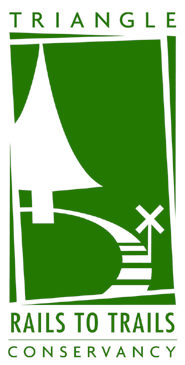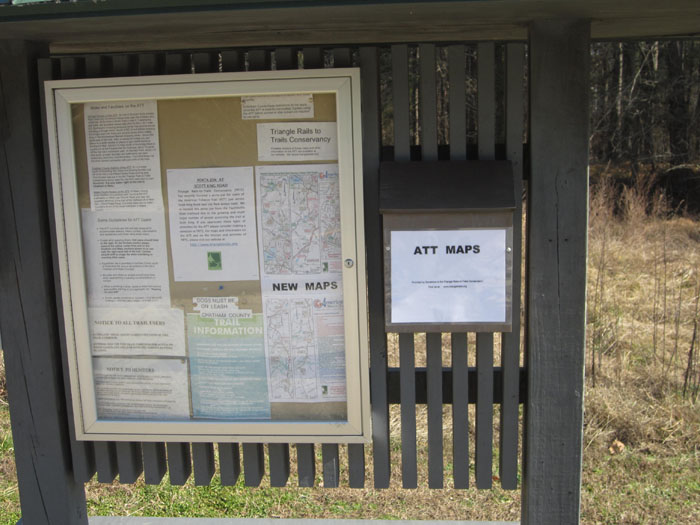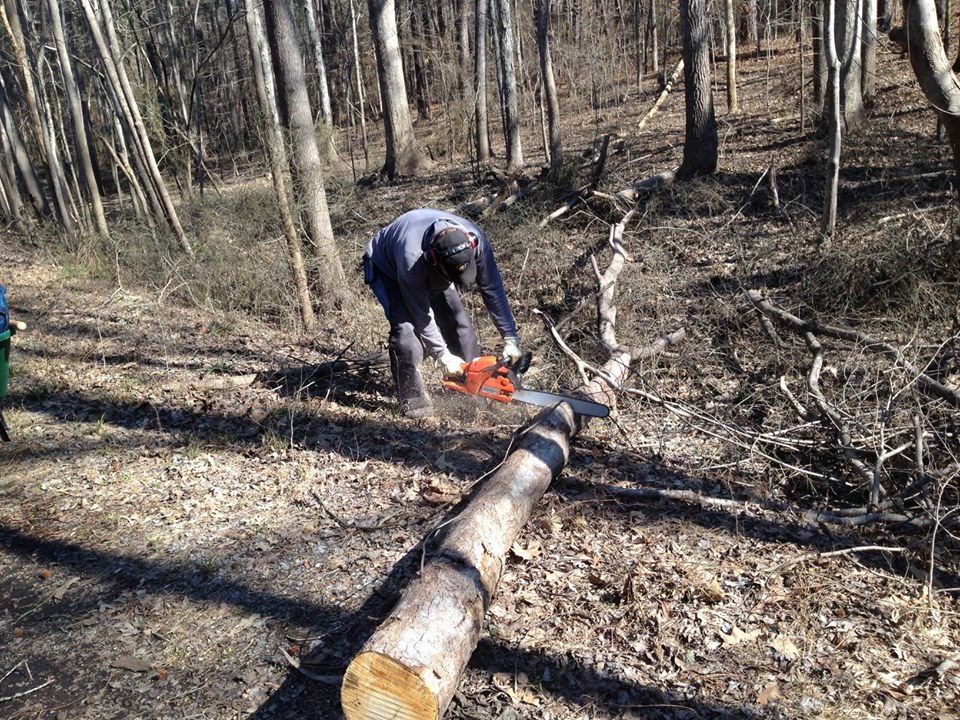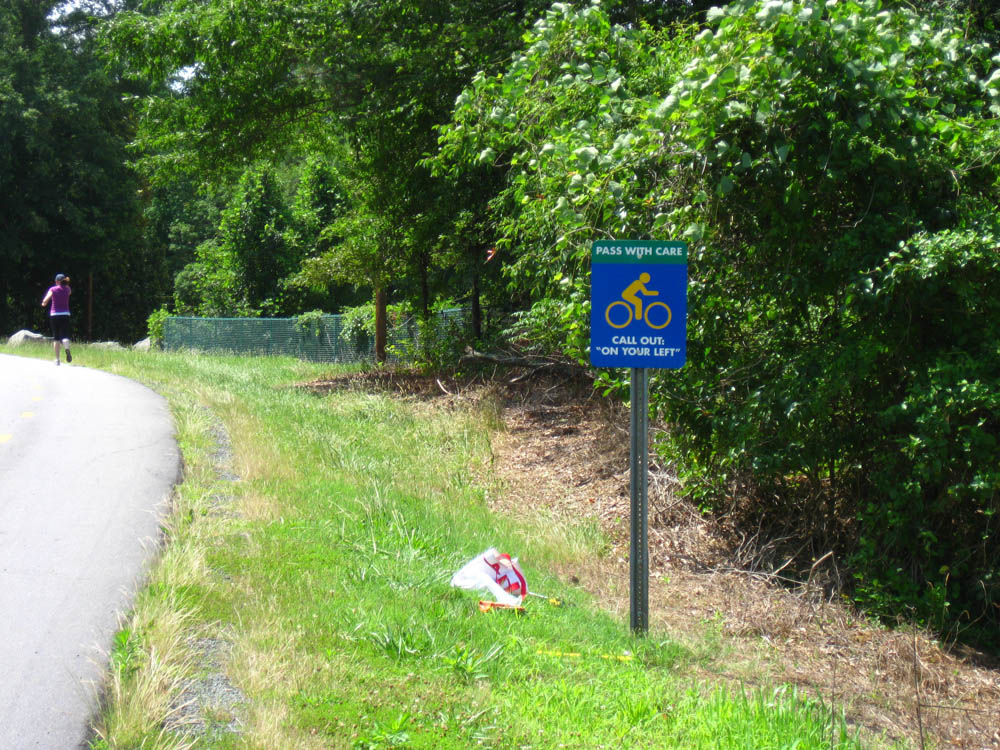The 2.3 mile Eagle Spur trail (with access from Stagecoach Rd.), part of the original railroad route from Durham to Duncan, provides a connection to Jordan Lake. Please see our new new map of the Eagle Spur trail. This section of the B. Everett Jordan Lake Project, which is currently managed by the North Carolina Wildlife Resources Commission, is reportedly the largest summertime roost of bald eagles in the Eastern United States. An image from late August 2012 shows it’s pleasant, rural character. A possible future extension to the Eagle Spur has been identified as part of plans for a new townhouse development adjacent to St. Barbara’s church on the west side of NC 751. TRTC will be working with Durham to assure that this section of the original Durham to Duncan rail corridor is preserved. Later, we will continue discussions with the developer to get a trail from the development to Stagecoach Road constructed on this corridor segment.
Since early in 2017 TRTC has undertaken efforts to replace three large culverts crossing the lower end of the trail. Putting these in has turned out to be a large project as each of these heavy plastic culverts is 20′ long, 3′ in diameter, and to stay in place permanently must be covered with soil. Much higher than normal levels in Jordan Lake in the last 2 years has delayed our efforts. The high waters early in 2019 left several trees down and numerous logs and branches on the trail. Our April 7th workday removed downed trees and over 25 large bags of trash from the winter flooding. A second clean-up day is planned for May 18th. Work has continued since 2019 and been slowed several times by high water on the trail. For info on our work since 2021 please see the November 2023 update article.
The ATT—A Trail in Progress
Grading and paving of the 6.8 mile City of Durham section north of I-40 began in May 1999 and the first 3.2 miles were opened for public use on June 3, 2000. Work on the second major section of the ATT from near Hillside H.S. to NC 54 commenced in the Fall of 2001. Completion of this section and a connecting trail paralleling Riddle Road was completed in August, 2002. Opening ceremonies for these second phases were held on September 28, 2002. The southern section of the ATT (from south of the Streets of Southpoint to Northeast Creek) has been developed as a soft surface trail by “Friends of the American Tobacco Trail” using ambitious volunteer efforts and a grant provided to TRTC by Durham County. TRTC continued to maintain this section as a soft surface trail until Durham’s long-awaited Phase E broke ground in 2012. In building Phase E, the City of Durham had to use a new corridor north of Massey Chapel Road to connect the area from NC 54 to the Chatham County line via the new bridge over I-40 on a 10′ wide asphalt surface.
Wake County held a public hearing in July 1998 and over a 2 year period resolved the concerns of adjacent landowners, developed plans, and acquired County and State grant funds for the multi-year development of the Wake section. A lease for the Wake section was signed by the County and NCDOT in the Fall of 2001. Construction of the southern 3.75 miles of the Wake section and re-decking of the 3 Wake County bridges were initiated in September 2002. This initial Wake section was formally opened for use in August 2003. A master Plan for the for the Chatham County section was completed and adopted late in 2001. Local funding was not then available for the Chatham section and ultimately was provided by Federal funds sponsored by Congressman Price in 2005 and 2006. Due to lack of a construction engineering staff, Chatham delegated responsibility for design to North Carolina’s Dept. of Transportation. Oversight of construction was handled by the Town of Cary’s Parks Dept. Cary retained a contractor to assist in these efforts. A Request for Proposal for the actual construction was issued in the Fall of 2008. The 4.67 mile Chatham section was completed in December 2009. This included re-decking the old but still strong RR bridges over Northeast Creek and Panther Creek. Maintenance of the Chatham section of the trail is being handled by the Town of Cary under a renewable agreement with Chatham County.
Thanks to the joint efforts of volunteers, government staff and officials, real progress continues.




